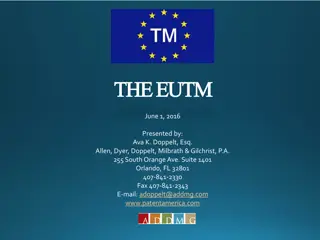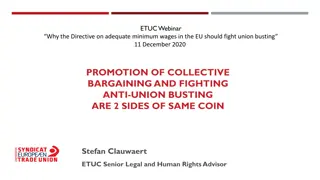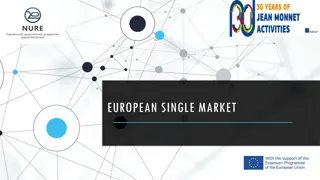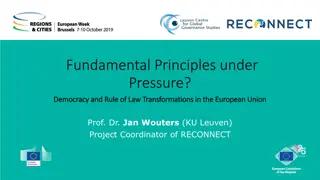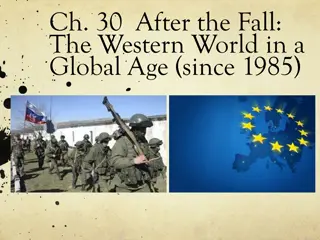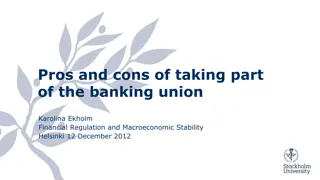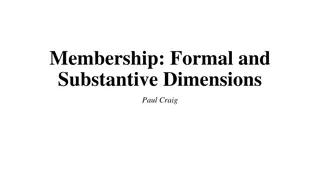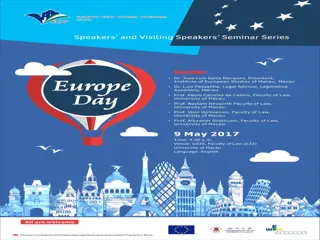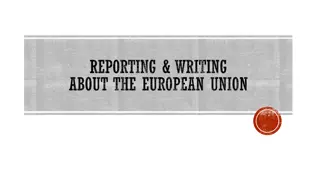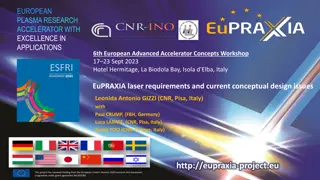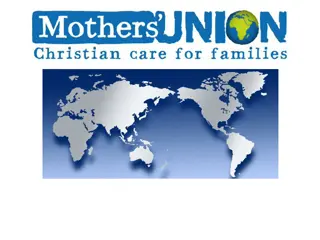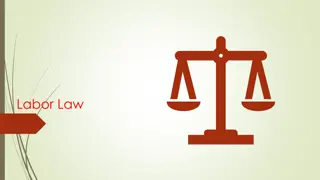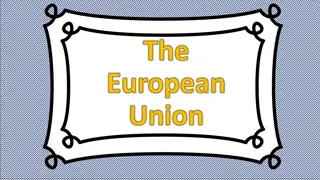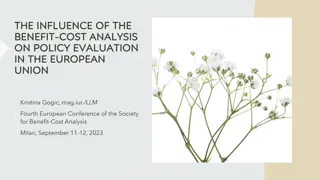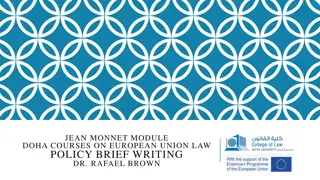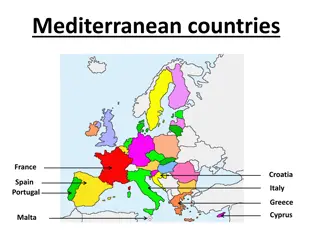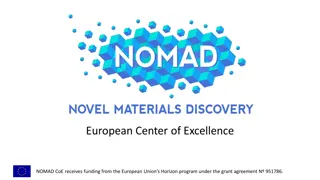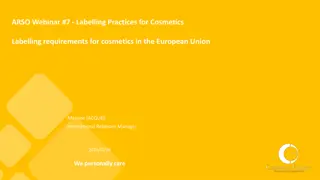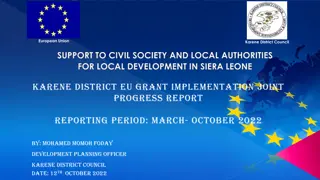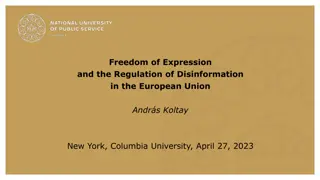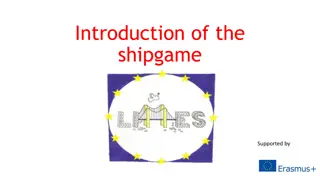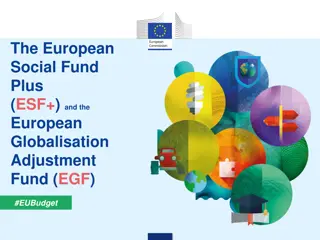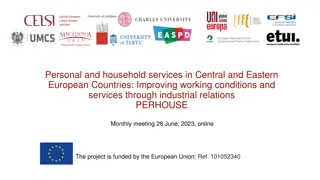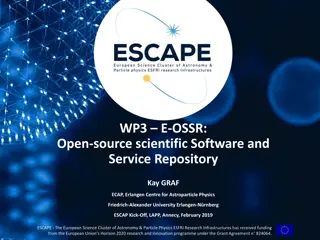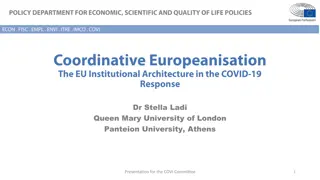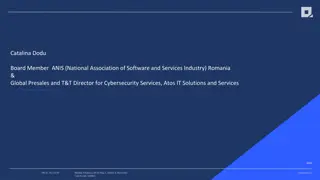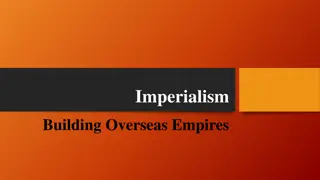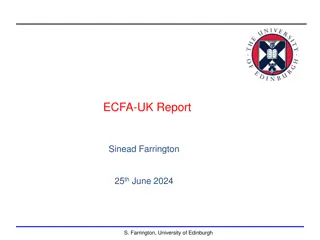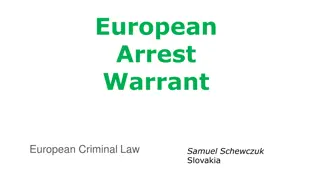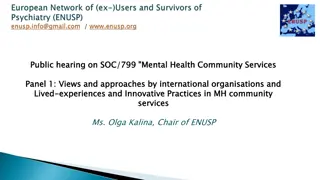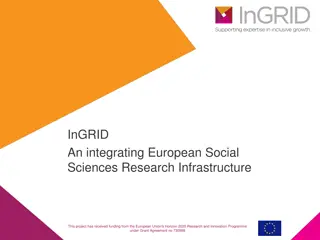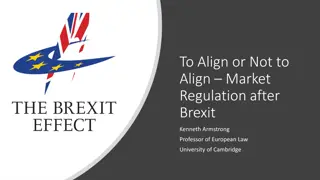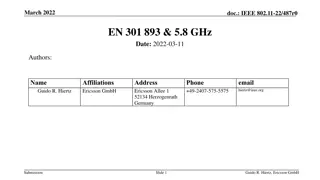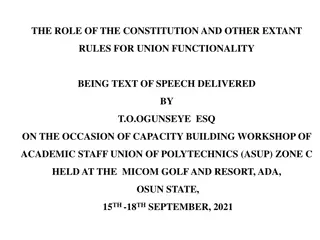Evolution of the Single Market in the European Union
The creation of the Single Market within the European Union has its origins in the Treaty of Rome, aiming to ensure the free movement of goods, services, labor, and capital. This evolution involved the elimination of barriers, harmonization of rules, and the introduction of EU citizenship to enable the freedom of movement and residence. The Single Market is characterized by the four fundamental freedoms: movement of goods, workers, establishment of persons and companies, and capital movements.
Download Presentation

Please find below an Image/Link to download the presentation.
The content on the website is provided AS IS for your information and personal use only. It may not be sold, licensed, or shared on other websites without obtaining consent from the author. Download presentation by click this link. If you encounter any issues during the download, it is possible that the publisher has removed the file from their server.
E N D
Presentation Transcript
Prof. Susanna Cafaro A.A 2017/2018 Law Faculty. Universit del Salento
The Single Market has its origins in the Treaty of Economic Community. It is one of the main objectives Common Internal synonymously but have significant nuances of meaning. The creation of a common market implies the free labour, capital and services. Rome that established the European market", market" Single are market" used and almost free movement movement of of production production factors factors:
The creation of the single market necessitated the elimination of all remaining obstacles to free movement of goods. The Commission White Paper of June 1985 set out the physical and technical obstacles to be removed, and the measures to be taken by the Community to this end. Most of these measures have now been adopted.
Harmonisation has been further facilitated by the introduction of the qualified majority rule, required for most directives relating to the completion of the single market (Article 95 of the EC Treaty, as modified by the Maastricht Treaty), and by the adoption of a new approach, proposed in a Commission White Paper of June 1985, aimed at avoiding onerous and detailed harmonisation. In the new approach based on the Council resolution of 7 May 1985, the guiding principle is the mutual recognition of national rules.
An area without internal frontiers in which four fundamental freedoms are ensured (freedom of movement of goods; freedom of movement of salaried and non salaried workers - freedom of establishment of persons and companies and freedom of capital movements) An area without internal frontiers in which four fundamental freedoms are ensured
The Treaty of Maastricht introduced the notion of EU citizenship to be enjoyed automatically by every national of a Member State. It is this EU citizenship that underpins the right of persons to move and reside freely within the territory of the Member States
In all its activities, the Union shall observe the principle of the equality of its citizens, who shall receive equal attention from its institutions, bodies, offices and agencies. Every national of a Member State shall be a citizen of the Union. Citizenship of the Union shall be additional to and not replace national citizenship.
Freedom of movement and residence for persons in the EU is the cornerstone of Union citizenship, established by the Treaty of Maastricht in 1992. The gradual phasing-out of internal borders under the Schengen agreements was followed by the adoption of Directive 2004/38/EC on the right of EU citizens and their family members to move and reside freely within the EU.
Citizens Are a democratic element, they legitimate European institutiuons according to articles 10 and 11 of EU Treaty Every EU citizen has the right to vote and stand as a candidate in both local and European elections in the EU country they live in, under the same conditions as nationals of that country under the same conditions as nationals of that country.
1. The functioning of the Union shall be founded on representative democracy. 2. Citizens are directly represented at Union level in the European Parliament. Member States are represented in the European Council by their Heads of State or Government and in the Council by their governments, themselves democratically accountable either to their national Parliaments, or to their citizens. 3. Every citizen shall have the right to participate in the democratic life of the Union. Decisions shall be taken as openly and as closely as possible to the citizen. 4. Political parties at European level contribute to forming European political awareness and to expressing the will of citizens of the Union.
1. The institutions shall, by appropriate means, give citizens and representative associations the opportunity to make known and publicly exchange their views in all areas of Union action. 2. The institutions shall maintain an open, transparent and regular dialogue with representative associations and civil society. 3. The European Commission shall carry out broad consultations with parties concerned in order to ensure that the Union s actions are coherent and transparent. 4. Not less than one million citizens who are nationals of a significant number of Member States may take the initiative of inviting the European Commission, within the framework of its powers, to submit any appropriate proposal on matters where citizens consider that a legal act of the Union is required for the purpose of implementing the Treaties ( )
Citizens can petition the European Parliament to address either a personal need or grievance, or on a matter of public interest. The subject must fall within the EU s remit (i.e. it mustn t be something that is decided at local or national level) and must affect you directly. complain to the European Ombudsman about misconduct by an EU institution or body. can also contact EU institutions and advisory bodies directly, and are entitled to a reply in any of the EU s 24 official languages.
If citizens are in a non-EU country and need help, they -as EU citizens - are entitled to consular protection from the embassy or consulate of any other EU country, if their own country does not have an embassy or consulate in the non-EU country. they can ask for assistance in situations involving, for example, death, accident or illness, arrest or detention, being the victim of violent crime and repatriation.
Two Schengen agreements: the Agreement of 14 June 1985 the Convention implementing the Schengen Agreement, signed on 19 June 1990 and entered into force on 26 March 1995. Initially, the Schengen Convention was based on intergovernmental cooperation in the field of justice and home affairs. A protocol to the Amsterdam Treaty provided for the transfer of the Schengen acquis into the Treaties.
a. b. controls: all EU citizens need only show an identity card or passport to enter the Schengen area c. countries included in the common list of non-member countries whose nationals need an entry visa may obtain a single visa, valid for the entire Schengen area; d. other in detecting and preventing crime and have the right to pursue fugitive criminals into the territory of a neighbouring Schengen state; e. Information System (SIS) a. The abolition of internal border controls for all persons; b. Measures to strengthen and harmonise external border c. A common visa policy for short stays: nationals of third d. Police and judicial cooperation: police forces assist each e. The establishment and development of the Schengen
The Charter of Fundamental Rights of the European Union 7 December 2000. However, its legal status was uncertain. It gained full legal effect after the entry into force of the Treaty of Lisbon on 1 December 2009. Before then, the ECJ applied the articles of the European Convention on Human Rights as all member states were signatories (it could be used as a reference for Common Constitutional Traditions ) Charter of Fundamental Rights of the European Union was solemnly proclaimed on
Unisalento > phonebook> Susanna Cafaro > materiale didattico


